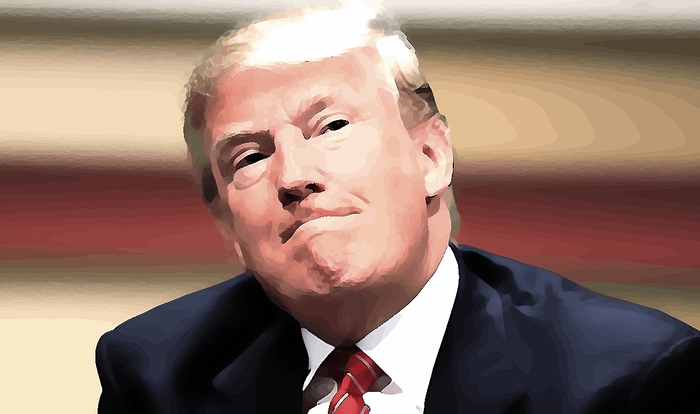
"They got brought here at a very young age, they've worked here, they've gone to school here. Some were good students. Some have wonderful jobs. And they're in never-never land because they don't know what's going to happen."
Which political leader made these compassionate remarks about the "dreamers" - the roughly 1.8 million children who were brought to this country illegally by their parents and know no other home than the United States?
President Barack Obama? Hillary Clinton?
No, it was Donald Trump.
Trump told Time magazine during his "Person of the Year" interview that while he was not backing off his pledge to rescind Obama's executive amnesty, when it comes to the dreamers, "We're going to work something out that's going to make people happy and proud."
Trump's latest comments have dismayed immigration hard-liners, who see the president-elect softening his position. Rep. Steve King, R-Iowa, blasted Trump, declaring "somebody's heart got a little softer than it was before the election."
Actually, for those who were paying attention, Trump's heart has always been soft on immigration - not just for dreamers but for most illegal immigrants. During the presidential campaign, Trump repeatedly said that he wanted to find a way for the vast majority of illegal immigrants (the "good ones," as he called them) to get right with the law and secure legal status. The mainstream media ignored this, because this did not fit with the media's narrative of a heartless Trump who wanted to break up families and send all 11 million illegal immigrants permanently back to their countries of origin.
Don't believe me? Let's review what Trump actually said.
In a July 2015 interview with Sean Hannity, Trump declared: "Some of these [illegal immigrants] are fantastic people. I've been to the border. I was there a few days ago. I met some people. These are fantastic people, and they have great reputations within their community. . . . The bad ones, they're gone. They never come back. They'll never get back into this country. But, the good ones, of which there are many, I want to expedite it so they can come back in legally."
When he was pressed in an interview by CNN's Dana Bash about the dreamers, he said: "I actually have a big heart. Something that nobody knows. A lot of people don't understand that. But the dreamers, it's a tough situation. We're going to do something. . . . I would get people out and then have an expedited way of getting them back into the country so they can be legal. . . . A lot of these people are helping us . . . and sometimes it's jobs a citizen of the United States doesn't even want to do. . . . I want to move them out. I want to move them back in and let them be legal."
Indeed, his son Eric expressed frustration at the media's inability to get this: "The point isn't just deporting them, it's deporting them and letting them back in legally. He's been so clear about that and I know the liberal media wants to misconstrue it, but it's deporting them and letting them back legally."
As I have pointed out, what Trump is describing here is a policy called "touchback." Championed by then-Sen. Kay Bailey Hutchison, R-Texas, in 2007, the idea is that illegal immigrants must return briefly to their countries of origin, where they can apply for a special visa that would allow them to reenter the United States in an expedited manner and work here indefinitely. The policy was endorsed by none other than The New York Times, which declared in a 2007 editorialthat "it's not ideal, but if a touchback provision is manageable and reassures people that illegal immigrants are indeed going to the back of the line, then it will be defensible."
The touchback plan lost narrowly in the Senate by a vote of 53-45. Among those who voted for it are two vulnerable Democrats who are up for reelection in 2018: Sen. Claire McCaskill of Missouri (a state Trump won by 19 points) and Sen. Jon Tester of Montana (where Trump won by 21 points). So any touchback plan Trump proposes is likely to get at least some bipartisan support.
If Trump implements a proposal like this, he won't need a "deportation force." The vast majority of illegal immigrants would voluntarily cooperate. A 2007 Los Angeles Times poll of illegal immigrants found that 63 percent would leave voluntarily if they were promised a chance to return, and 85 percent would do so if they were promised a path to citizenship. No need for the left's imagined jackbooted thugs or Hillary Clinton's revolting allusion to "boxcars."
Trump is not likely to pursue touchback legislation in Congress anytime soon. He knows he needs to secure the border first before he can do anything to settle the status of those here illegally. As he explained in August: "That discussion can take place only in an atmosphere in which illegal immigration is a memory of the past, no longer with us, allowing us to weigh the different options available based on the new circumstances at the time."
Since Democrats are unlikely to approve border security measures without amnesty, Trump will have to focus at the outset on vigorously enforcing current immigration law and use existing authorities to build a wall, deport criminal aliens and crack down on sanctuary cities that refuse to cooperate. Only when the "bad ones" are gone and the border is secured can he turn to resolving the status of the "good ones."
But make no mistake: Trump intends to give permanent legal status to the vast majority of those here illegally. And he may be the only president who could do so. Just as only Richard Nixon could go to China, it may be that only Donald Trump has the credibility to enact a plan that secures the border and gives legal status to illegal immigrants.
That is his plan. He has said so repeatedly, even if his critics - and some of his supporters - were not listening.
Comment by clicking here.
Previously:
• 12/07/16: Trump's Taiwan call wasn't a blunder. It was brilliant
• 11/23/16: 'Hamilton' and the implosion of the American left
• 11/15/16: The fall of the house of Obama is coming, and it's his own fault
• 11/02/16: Get ready for four more years of Clinton scandals
• 10/27/16: WikiLeaks is exposing Clinton's duplicity, but it's no hero
• 10/16/16: Hillary Clinton is a threat to religious liberty
• 09/20/16: Hillary Clinton tells dreadful lies
• 09/14/16: Bill Clinton's terrorism strategy led to 9/11. Hillary Clinton's is the exact same thing
• 07/28/16: The Dems' well-deserved WikiLeaks blowback
• 07/18/16: We were warned. Get ready for more terror attacks, folks
• 07/08/16: The FBI should release the memo
• 06/21/16: Trump neutralizes Dems' attacks by adopting their positions
• 06/16/16: Obama still in denial even after losing life and death game of connect-the-dots
• 04/12/16: What Trump can learn from Reagan and the '76 delegate fight
• 04/06/16: Gaffes show Trump is the left-wing caricature of a conservative
• 03/18/16: Stop blaming Trump supporters for campaign violence
• 02/22/16: Hey, Bernie: You're blowing it by refusing to attack Hillary over her scandals
• 02/02/16: Political establishment can learn a few things from hockey's all-star enforcer
• 01/26/16: Hillary's email excuses are falling apart
• 12/15/15: How Rubio is quietly killing ObamaCare
• 10/21/15: Yes, George W. Bush kept us safe
• 10/14/15: Finding a consensus conservative for the GOP


 Contact The Editor
Contact The Editor
 Articles By This Author
Articles By This Author